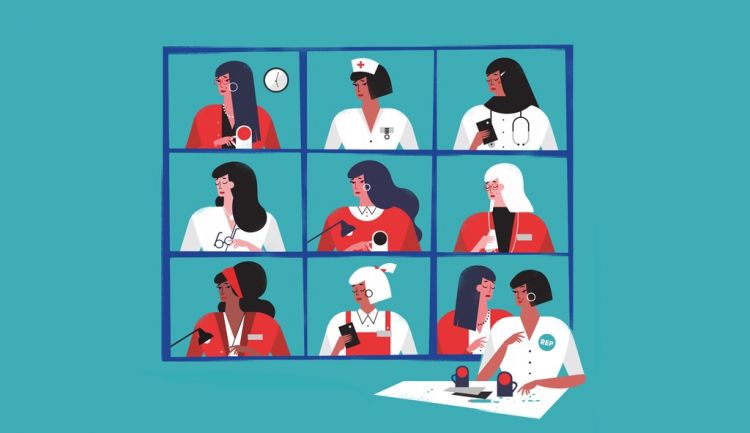Violence against women in the workplace - time for employers to wake up

This year's UN International Day for the Elimination of Violence Against Women focuses on the world of work.
Some people may think violence against women only happens on dark streets late at night, in war zones, or behind closed doors in the family home.
But violence against women and girls happens everywhere. In every country. In every different type of household. In the biggest cities and the smallest villages. In schools and universities. On public transport.
And in the workplace.
Sexual harassment is also a form of violence against women. Since the explosion of the #MeToo movement, no one could be in any doubt that it’s still rife in UK workplaces.
The TUC’s research into sexual harassment found that over half of all women have experienced some form of sexual harassment at work – a number that rises to nearly two third (63%) of women aged 18-24.
And it’s not just sexual harassment that affects women’s working lives.
In any one year in the UK, more than 20% of employed women take time off work because of domestic abuse, and 2% lose their jobs as a direct result of it.
In 2016, 4 women were murdered by men in the workplace (either at or near their workplace or the perpetrator’s workplace).
Unions have been challenging violence against women at home and work for many years.
But many employers are only now beginning to wake up to the scale of the problem of sexual harassment – and some still refuse to accept that domestic violence is a workplace issue.
Simple policies can make a huge difference.
And there’s so much that employers can do, such as providing training for line managers on sexual harassment, sexual violence, and domestic violence or offering paid leave for employees experiencing domestic violence.
Ensuring health and safety risk assessments take account of risks of sexual violence and harassment where employees are working in public facing roles, working late at night, working alone, or travelling for work is also important.
And it’s not just down to employers. The government can help tackle this problem too. We want it to:
1. Support the ILO Convention on violence and harassment in the world of work
Thanks to trade unions, the International Labour Organisation is drafting a convention on ending violence in the world of work that recognises violence as a gendered issue.
The draft text also states that domestic violence, stalking, sexual violence both in and outside of work, and sexual harassment are all workplace issues that unions, employers, and governments must try to tackle.
2. Introduce paid leave for survivors
There has been a lot of interest in New Zealand’s new statutory right to 10 days’ paid leave for workers experiencing domestic violence.
In fact, New Zealand is one of many countries to to recognise that women often lose their jobs due to domestic violence, making them even more isolated and financially dependent on their abuser.
Australian unions negotiated 20 days’ paid leave across the public sector, Italy has introduced 3 months’ paid leave in cases of domestic violence, and several Canadian provinces have introduced paid leave too.
The UK government should take note. Not many people will take up paid leave, but it could be lifesaving for those that do.
3. Strengthen the Equality Act
This could make it easier to tackle individual perpetrators of sexual harassment, as well as to tackle workplace cultures where harassment and discrimination have been allowed to flourish.
Important provisions within the Equality Act have been chipped away over the last nine years.
Ministers have stripped out the duty on employers to protect workers from third party harassment (harassment from clients, customers, patients or other third parties).
The power of employment tribunals to demand employers tackle a wider culture of harassment and discrimination rather than just dealing with individual cases has been removed.
And a provision to allow someone to take a claim to tribunal on the grounds of multiple discrimination (for instance, discrimination that is both sexist and racist) was never enacted.
We urgently need to reinstate and enact these elements of the Equality Act.
Stay Updated
Want to hear about our latest news and blogs?
Sign up now to get it straight to your inbox
